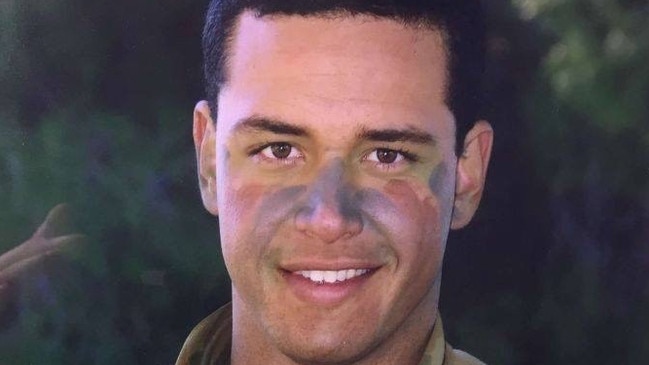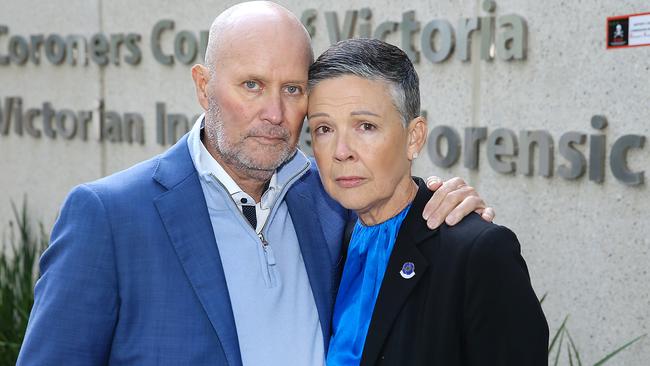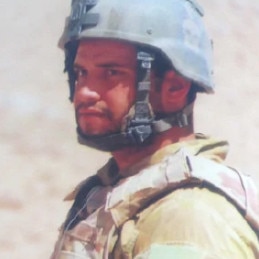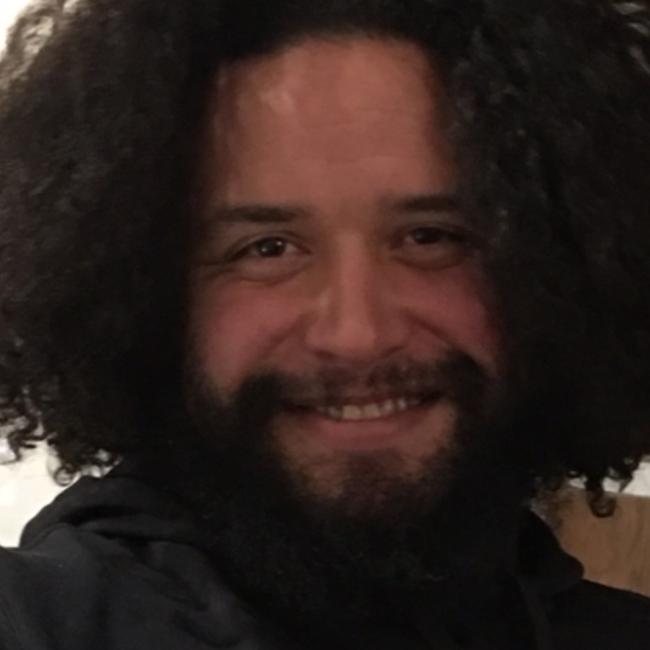AN Afghanistan combat veteran from the Gold Coast who took his own life while suffering from post-traumatic stress disorder was let down by the bureaucracy designed to help him.
Jesse Bird, 32, died surrounded by medals and paperwork for a military compensation claim for permanent impairment – accepted two weeks after his death in June 2017.

The TSS graduate’s parents, John and Karen Bird, have campaigned for changes to the Department of Veterans’ Affairs claims procedures.
Now, they have welcomed new recommendations by Victorian Coroner Jacqui Hawkins, who found Jesse was let down by defence bureaucracy.
But the Birds still hold out hope for a royal commission into veteran suicides and a sweeping overhaul of the department.
“I think Karen has been living on the edge waiting for this report to come out. We wanted the Coroner to recommend a royal commission,” John Bird said.

“They’ve promised to address a lot of aspects of the current legislation, but the problem is if there’s no one there to make sure they actually do it they could just revert back. These are veterans who fought for their country and Jesse was up the pointy end, make no mistake. We can’t bring him back. But there’s a whole lot other families out there with Jesses in them.”
“Karen and I said we couldn’t stand by and not do something to stop these boys killing themselves and their family having to go through all of the trauma.”

Mr Bird described the sixth generation Southport man as “a good honest kid” and “a bit of a devil” who received “glowing reports” while deployed.
“At his funeral at Melbourne a few boys came forward and said Jesse was the one who came to their aid when they were being bullied,” he said.
The Coroner said in her findings: “There appeared to be a lack of care, attention and proactive support, leaving Jesse with the belief that the only choice he had was to give up.”
“The mountainous paperwork, complex terminology, extensive legal and medical requirements, subsequent delays and financial stressors all appear to have exacerbated his mental illness.”

Jesse developed PTSD once he came home in early 2010, after a close friend and colleague was killed by an improvised explosive device.
He was nursing a badly injured shoulder and was discharged from the army. Jesse had hoped to move on and become a teacher after his deployment in 2009-10.
His relationship fell apart, his mental health deteriorated and he struggled to hold down a job. About two months before he died, Jesse received a letter saying his claim was rejected.
No one phoned to explain the decision or his options, which according to defence policy should have included a deferral of the final decision.
Ms Hawkins criticised the rejection as lacking “appropriate compassion and empathy”.
Jesse’s associated claim for payments was still crawling through the system when he died.

Days earlier, Jesse emailed the department pleading for help and he referenced suicide.
Worried friends entered Jesse’s Melbourne apartment through a balcony and found him dead on June 27, 2017.
A subsequent defence review in 2017 made 19 recommendations to overhaul the compensation process.
Ms Hawkins could not say whether Jesse’s death would have been prevented if the defence review recommendations were in place at the time of his claim.
She recommended additional steps, including a public awareness campaign for veterans and simplifying the claims process.
Do you need help? Phone Lifeline 13 11 14 or Beyond Blue on 1300 22 4636

How brewer found success in the aftermath of Burleigh brewery closure
A leading figure involved with a former embattled Gold Coast brewery has shared how he went from a ‘dire’ situation to running a venue of his own. Read his story
Harvey Norman CEO: ‘No retiring or legacy talk. I think what’s next?’
Harvey Norman CEO Katie Page - fresh from expansion in the UK - opens up on her enduring belief in bricks and mortar retail while dismissing suggestion of retirement or care for legacy.